More than a study abroad: XMNR’s global field experience and capstone project
October 18, 2022

By David Robertson
As a part of Virginia Tech’s Executive Master of Natural Resources (XMNR) program, students participate in a unique Global Study experience which combines a multi-month service learning project with a 10-day international trip to countries facing profound challenges and opportunities regarding sustainable development. Prior to, during, and following travel, students work on a variety of assignments, such as case studies and reports, that provide skill-based volunteer and pro-bono consulting benefits to key stakeholders, including local partners and the international sustainability profession. The experience culminates in a capstone project.
XMNR students are seeking to gain the credentials, competencies, connections, and confidence to grow as leaders in the sustainability field. Employers are looking for sustainability professionals to have a global perspective, intercultural competence, and the ability to engage with their professional peers in different national contexts. The XMNR Global Study experience helps each student to accomplish these learning outcomes while also reinforcing lessons learned earlier in the program and producing valuable work samples for their professional portfolio.
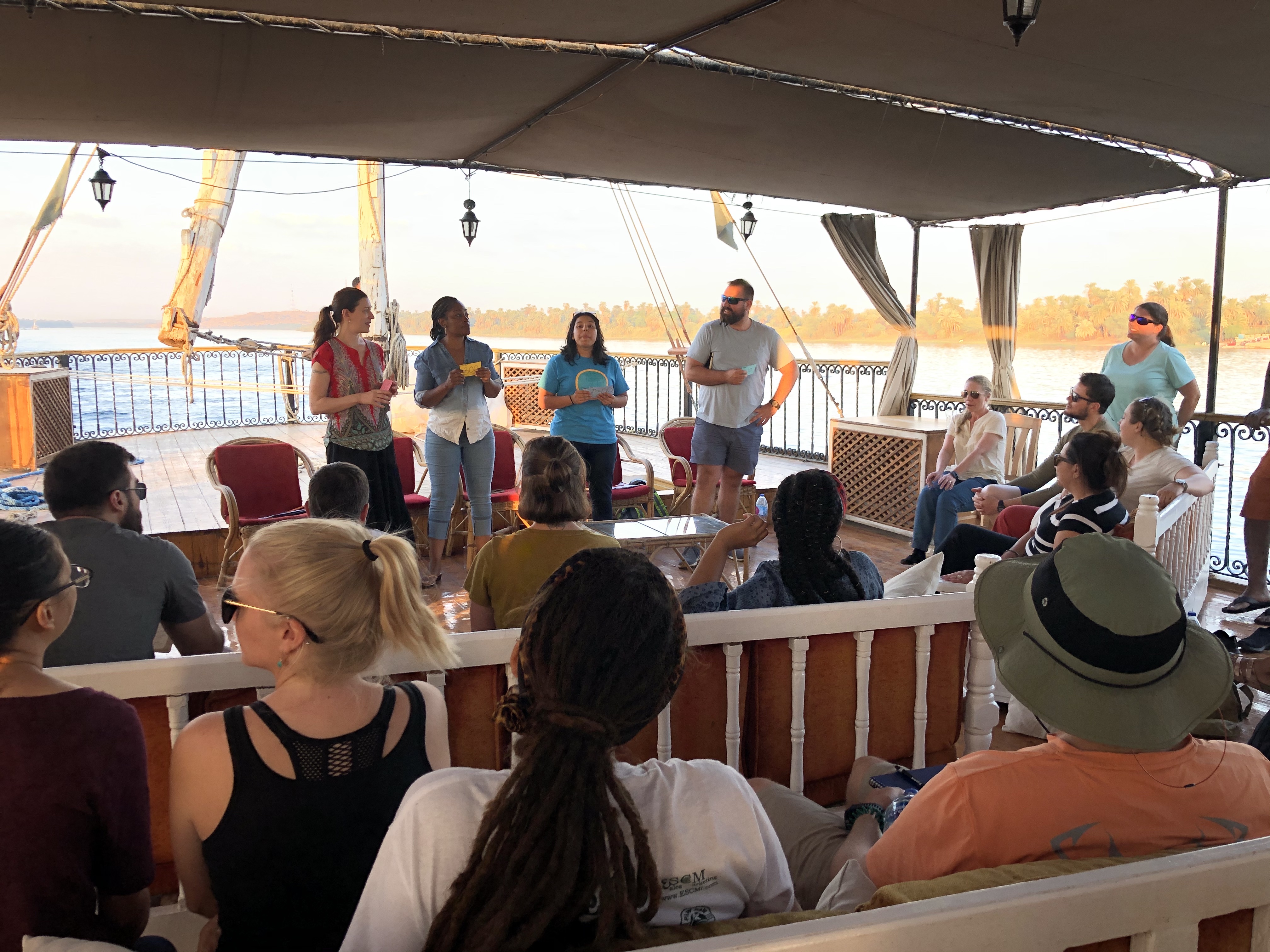
Pre-departure learning objectives
In the months leading up to the trip, students complete several assignments that are designed to help them better understand the environmental and cultural context of the country they will be visiting. For example, a World Tour assignment enables students to do a comparative analysis of multiple countries and how they stack up relative to one another on a variety of environmental, social, and governance indicators and metrics. XMNR faculty Holly Wise developed and teaches the World Tour modules, and says, “The World Tour provides a sensemaking framework to observe a system and understand some of how it works in terms of key issues and actors. Student teams create a video presentation of a half-dozen country-specific sustainability profiles. In doing so, they are introduced to the indicators, indices, and data sets to inform a snapshot of the sustainability situation in a country. They then use the same World Tour analytic methodology to paint the sustainability picture at the national, regional, and local levels of the country that is the focus of the Global Study. The World Tour approach uses data, a framework, collective decision making, and creative storytelling to equip the students to understand the context and system dynamics of the places they may study, travel, and work.”
In addition, students complete intercultural assessments and assignments to help them improve their cultural competence, and do a deep dive into specific sustainable development issues of significance in the country, for example water and hygiene in rural India or food and agriculture in the Nile River Delta. XMNR faculty Elizabeth Hurley teaches a class on intercultural competency. She says, “One of our goals is to prepare students to span cultural boundaries and develop innovative solutions that are culturally appropriate and effective. The XMNR Global Study was designed to introduce students to real-world examples that illustrate the need to develop intercultural competencies to solve sustainability challenges.”
After learning about the larger context of the country they will be visiting, students then dig into a series of local and regional case studies focusing on specific stakeholders in the business, government, and non-profit sectors who are applying innovative Systems Leadership skills and strategies to influence and lead change in their organizations and networks. These projects involve real people doing real things to solve complex and persistent problems in the workplace, in their communities, and around the world.
The XMNR Global Study experience is more than a typical study abroad; it is an opportunity for students to connect and build relationships with their professional peers who are practicing and applying Systems Leadership for sustainable development in another part of the world. Students produce case studies and reports on lessons learned, and share stories with other stakeholders through blog posts and other media outlets.
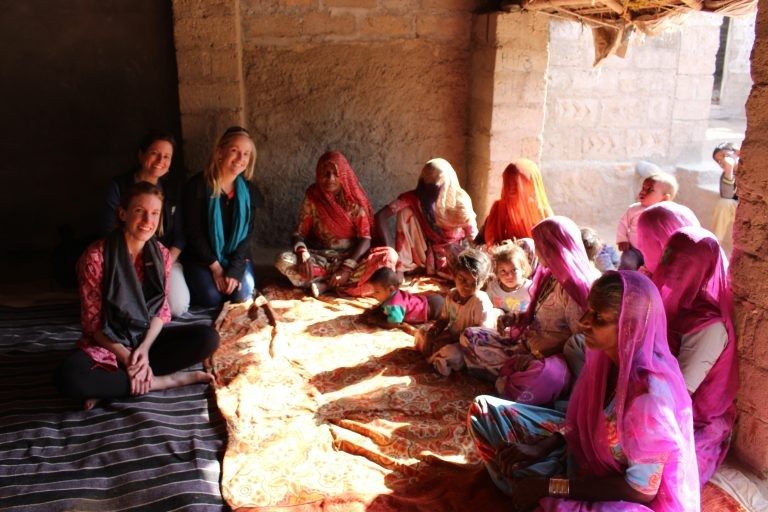
What countries do XMNR students and faculty travel to?
Since the start of the XMNR program in 2011, students have traveled to and completed case study projects in a variety of countries on several continents, including China, Egypt, India, Mexico, Morocco, South Africa, and Turkey. What do these countries have in common? They are all middle-income and developing countries where the economy is growing rapidly, the middle class is expanding and changing their consumption practices, and significant investments are being made in green buildings and infrastructure. They are places where Systems Leadership is needed to achieve sustainable development goals and outcomes.
In “The Dawn of System Leadership,” Senge and colleagues make the case: “At no time in history have we needed such system leaders more. We face a host of systemic challenges beyond the reach of existing institutions and their hierarchical authority structures. Problems like climate change, destruction of ecosystems, growing scarcity of water, youth unemployment, and embedded poverty and inequity require unprecedented collaboration among different organizations, sectors, and even countries.” Therefore, XMNR Global Study trips and case projects are focused on countries in which sustainability professionals with Systems Leadership skills have an opportunity to make a profound impact.
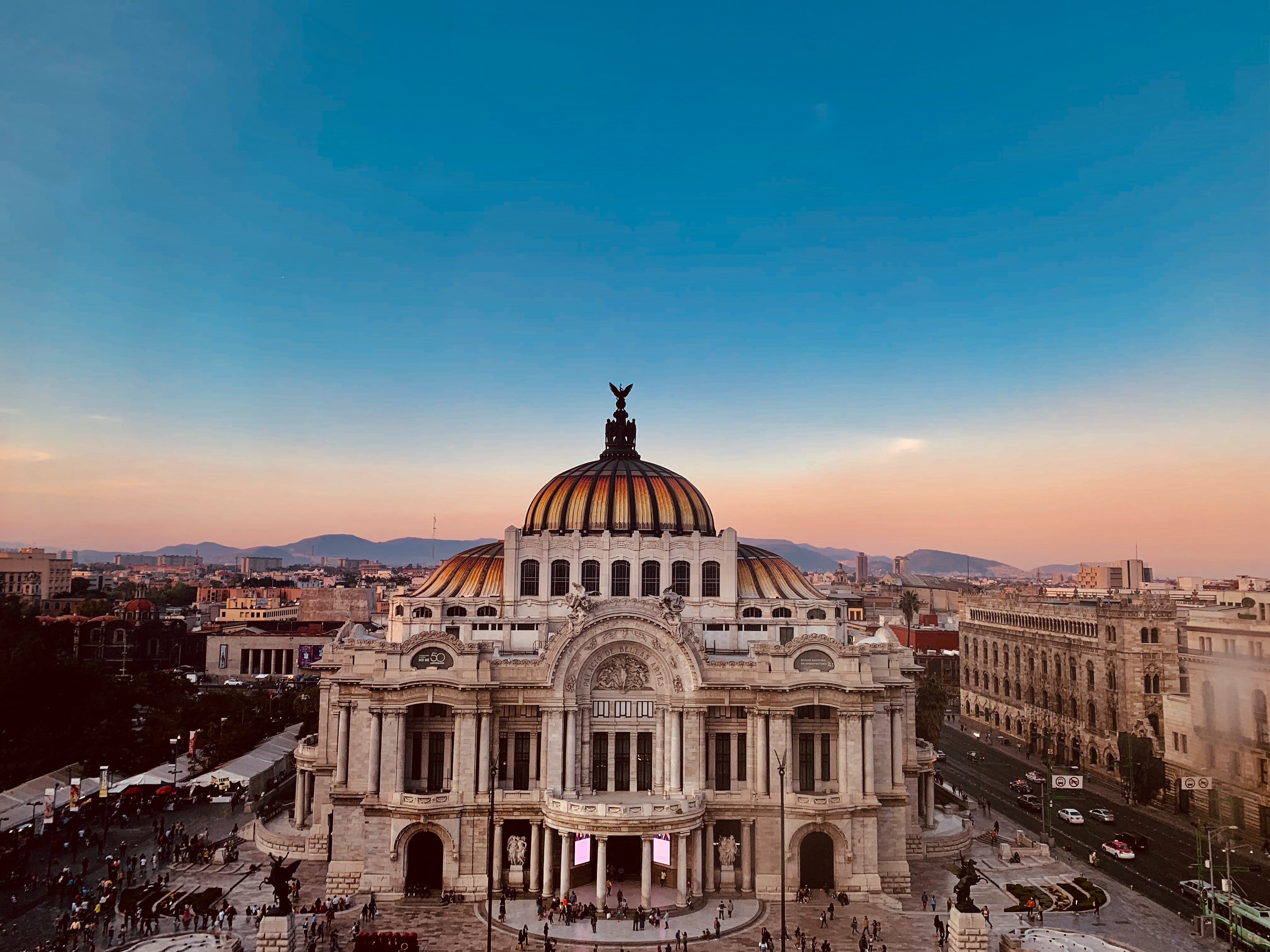
Spotlight on Mexico as a Global Study destination
XMNR students and faculty traveling to Mexico will meet and engage with sustainability professionals from business, government, and non-profit sectors to learn how they are applying Systems Leadership practices to influence change in their organizations and networks. In particular, students will immerse themselves in the case of Isla Urbana and public–private partnerships for community-based rainwater harvesting as a Systems Leadership strategy for water security and sustainable urban development in Mexico City. Students will also study the case of Mezcal Amarás and World Wildlife Fund collaborating to lead change in the agave industry as a Systems Leadership strategy for climate security and sustainable rural development in Oaxaca. Other cases include corporate sustainability and resilient supply chain practices at international companies like Grupo Bimbo and CEMEX and ecosystem restoration and heritage conservation practices at civic organizations like REDES.
“It is hard to overemphasize the power of meeting sustainability professionals where they work, visiting with their stakeholders, observing their innovation and collaboration skills, and being inspired by the energy, pride, and challenge of making a dent in real-world, super messy, critically important sustainability challenges. Our students benefit by networking with these talented professionals, learning about job and career opportunities, and observing how XMNR skillsets are relevant to global problems,” said Bruce Hull, XMNR faculty.
In Mexico, we are also privileged to have the opportunity to work with faculty, staff, and alums from educational institutions like Universidad del Medio Ambiente (UMA). XMNR faculty and staff have worked with UMA faculty and administrators as part of an international community-of-practice for systems change educators, and more recently on developing XMNR Global Study experiences in Mexico. UMA is a small but mighty university based in Valle de Bravo near Mexico City. They specialize in systems change education and offer professional graduate programs covering topics very similar to the Systems Leadership strategies taught in the XMNR curriculum. We are fortunate to have access to the expertise and connections provided by the UMA faculty and alums. They have introduced us to new partners in Mexico City and Oaxaca and opened the door for our students to experience novel approaches to leadership for sustainability in this dynamic country.
Why Mexico?
Like other middle-income and developing countries, Mexico is an ideal location for an XMNR Global Study. The mix of developed and developing regions within the country provides a teachable moment regarding the importance of sustainable development as related to issues as diverse as public health, education, housing, and meeting the basic needs of citizens and communities regarding issues like energy access, water supply, waste management, and sanitation. It is also an opportunity for students to experience upstream and downstream issues regarding supply chains, pollution, and the impacts of the external costs and displaced impacts of a global economy that is often more linear and wasteful than circular and regenerative. Lastly, students are able to build meaningful relationships with their professional peers across the border; relationships that they can maintain in part due to relative proximity but also to material significance. Many of our students are likely to return to Mexico in the future, for work or pleasure.
During the Global Study trip to Mexico this fall, students will be studying food and agriculture, water, and climate-related issues in an urban context in Mexico City and a rural setting in Oaxaca. Mexico City is the largest city in the western hemisphere, a global megacity with a population of more than 20 million people in the metro area and growing. Like the city itself, the sustainable development challenges and opportunities, including the infrastructure related to energy, food, and water security, are immense and potentially overwhelming. In contrast, Oaxaca is much more rural and faces profound changes in agriculture, biodiversity, and livelihoods as tourism and agave industries expand and the forces of migration push and pull people away. Our goal is to better understand these dynamics and how individual and organizational stakeholders are leading from where they are to influence systems change in these richly storied landscapes. There is much to learn!
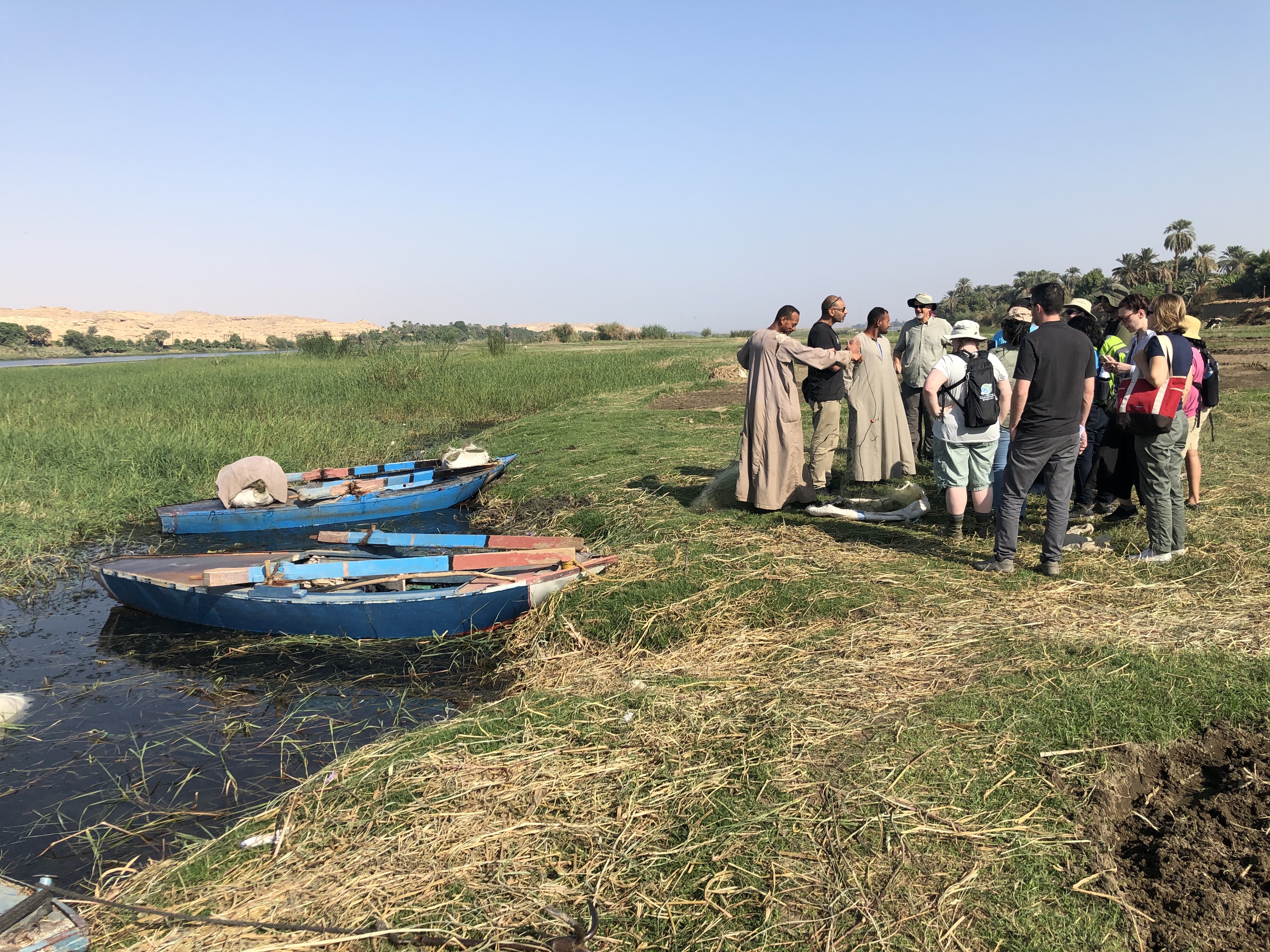
Beyond Mexico: six countries and counting
Since the start of the XMNR program in 2011, we have worked on projects in Africa, Asia, Europe, and the Americas including the following countries: China, Egypt, Mexico, Morocco, India, South Africa, and Turkey. Below is more information with links to student projects and reflections on this unique service learning experience.
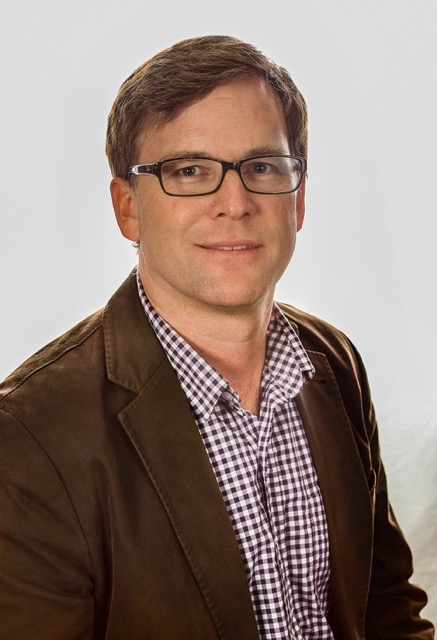
David Robertson is the Director of the XMNR Program and Associate Director at CLiGS. David received a Ph.D. and a Master of Landscape Architecture degree from Virginia Tech and a B.A. in Art & Architecture from Montana State University. As the XMNR program director, David provides academic and career advising to students, works closely with faculty on curriculum development related to Systems Leadership, and engages with external partners to design projects and internship opportunities for students. His research and professional work is published in journals such as Society & Natural Resources, Conservation Biology, Ecology & Society, Environmental Management, and Environmental Science & Policy.


